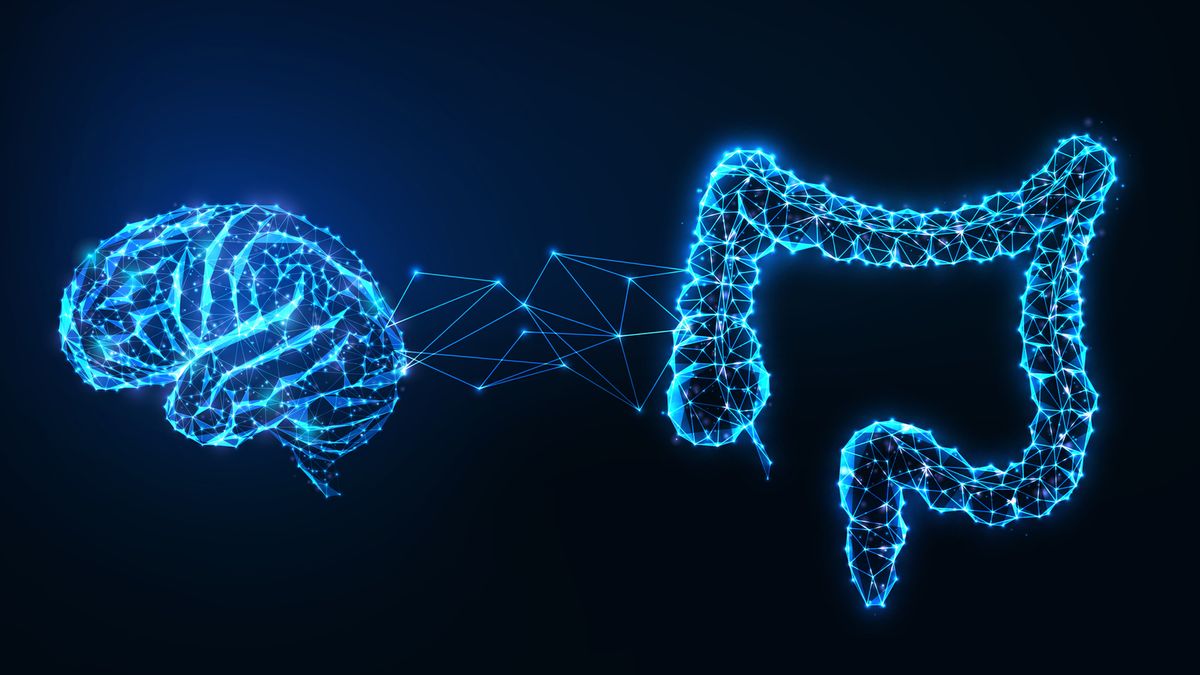Nutritional Psychiatry & Holistic Care: A Lifestyle-Based Guide for PMHNPs in 2025
Mental health care is experiencing a subtle yet significant transformation—one that transitions the emphasis from merely managing symptoms to providing holistic, lifestyle-integrated care. As psychiatric nurse practitioners (PMHNPs), we are no longer limited to the domain of medication management exclusively. Rather, we are being urged to embrace a more thorough, root-cause-focused methodology—one that harmonizes clinical excellence with evidence-based, integrative approaches. At the leading edge of this initiative is nutritional psychiatry, an emerging field that connects diet, inflammation, and gut-brain axis communication to mood, cognition, and overall mental health. However, this change encompasses much more than just dietary considerations. It pertains to our sleep patterns, physical activity, breathing techniques, and the connections we foster—with ourselves, with others, and with the natural environment. Today’s patients are increasingly in search of personalized, sustainable solutions—options that provide more than just a prescription. Many are already consulting nutritionists, influencers, or unverified online resources for mental health guidance. This is where PMHNPs can emerge as reliable, credentialed advisors, providing holistic support that is rooted in scientific evidence and delivered with compassion. In this blog, we delve into how PMHNPs can successfully incorporate nutrition-focused interventions, sleep hygiene practices, mindfulness, nature therapy, and other lifestyle-oriented tools into routine psychiatric care. Whether you are working in outpatient clinics, community health environments, or telepsychiatry platforms, these strategies can enhance your care model and empower your patients. By adopting lifestyle psychiatry, we not only improve clinical outcomes but also assist patients in cultivating healthier, more resilient lives—both internally and externally.
Nutritional Psychiatry: The Science Behind Food and Mood
Nutritional psychiatry examines the impact of dietary choices and nutrient intake on brain function, mood management, and mental health disorders. In recent years, this field has gained considerable attention as studies uncover the gut-brain axis—a two-way communication system linking the central nervous system with the enteric (gut) nervous system. This relationship clarifies why our dietary habits influence not only our physical well-being but also our emotional health, cognitive abilities, and capacity to handle stress. PMHNPs are increasingly acknowledging that nutritional deficiencies can significantly contribute to conditions such as depression, anxiety, ADHD, and even psychotic disorders. For instance, a lack of B vitamins, magnesium, zinc, omega-3 fatty acids, and amino acids has been associated with depressive moods and cognitive impairments. Similarly, diets that are high in sugar, ultra-processed foods, and inflammatory oils have been linked to higher incidences of depression and anxiety. Nutritional psychiatry interventions can vary from basic dietary evaluations and patient education to more comprehensive nutrition plans developed in partnership with dietitians. The Mediterranean diet, for example—characterized by an abundance of vegetables, legumes, healthy fats, and fermented foods—has demonstrated a significant reduction in depressive symptoms in randomized controlled trials. As a PMHNP, even short discussions focused on nutrition can empower patients to take charge of their mental health. Identifying nutritional deficiencies, referring patients to functional laboratories, or advising them on anti-inflammatory dietary practices can be both therapeutically beneficial and profoundly affirming for clients seeking alternatives to medication.
 Gut-Brain Axis: Microbiome, Inflammation, and Mental Illness
Gut-Brain Axis: Microbiome, Inflammation, and Mental Illness
The gut-brain axis has become an essential framework for comprehending the biological foundations of mental health disorders. This bidirectional communication network links the central nervous system with the enteric nervous system—commonly known as the "second brain"—via the vagus nerve, immune pathways, and neurotransmitter signaling. Importantly, the gut plays a vital role in producing and regulating significant neurochemicals such as serotonin (up to 90%), GABA, and dopamine, which are crucial for maintaining mood stability, focus, and emotional regulation. At the core of this connection is the gut microbiome—a complex ecosystem comprising trillions of bacteria that affect various functions, including nutrient absorption, immune response, and stress management. An imbalance in this microbial environment, referred to as dysbiosis, can lead to conditions such as leaky gut, low-grade systemic inflammation, and neuroinflammation. These inflammatory mechanisms are increasingly associated with the pathophysiology of mood and anxiety disorders, including major depressive disorder, bipolar disorder, and generalized anxiety disorder. For psychiatric nurse practitioners, focusing on gut health transcends being merely a trend in functional medicine—it represents a scientifically supported opportunity to improve mental health outcomes. Advising patients to consume probiotic-rich foods (such as kefir, yogurt, kimchi, and sauerkraut) and prebiotic fibers (like garlic, onions, and bananas) can enhance microbiome diversity. Equally crucial is assisting patients in minimizing gut-disruptive substances such as alcohol, highly processed foods, and NSAIDs. Additionally, supplemental support with omega-3 fatty acids, curcumin, or glutamine may help mitigate inflammation and bolster gut integrity. Concurrently, the expanding field of psychobiotics presents strain-specific bacteria—such as Lactobacillus rhamnosus and Bifidobacterium longum—that have shown anxiolytic and antidepressant properties.
Sleep Hygiene as a Psychiatric Intervention
Sleep is not a luxury—it is a psychiatric necessity. Insomnia, poor sleep quality, and disrupted circadian rhythms are common in almost all psychiatric disorders, and yet sleep remains under-assessed in many clinical encounters. For PMHNPs, addressing sleep is a foundational step toward stabilizing mood, improving medication efficacy, and preventing relapse. Chronic sleep deprivation contributes to increased cortisol levels, impaired glucose metabolism, reduced neuroplasticity, and worsened emotional reactivity. Patients with bipolar disorder, PTSD, and ADHD are particularly vulnerable to the destabilizing effects of poor sleep. PMHNPs can begin by taking a detailed sleep history, assessing bedtime routines, sleep duration, screen use, and caffeine intake.
Sleep hygiene interventions include:
-
Encouraging consistent wake-sleep cycles
-
Reducing screen time 1–2 hours before bed
-
Limiting stimulants (caffeine, nicotine) after noon
-
Promoting natural light exposure in the morning
-
Using calming techniques like deep breathing, warm baths, or guided meditations
When indicated, PMHNPs may also use pharmacologic sleep aids such as melatonin, trazodone, or suvorexant. However, behavioral strategies should always accompany medication use. A holistic sleep hygiene plan, documented and followed, can dramatically improve overall outcomes in patients with depression, anxiety, or psychosis. Don’t underestimate the impact of a good night’s sleep—it is a free, powerful, and underutilized antidepressant.

Nature Therapy & Eco-Psychiatry: Healing Through Connection to the Earth
In an increasingly urbanized and digitally overstimulated world, nature is emerging as a profound therapeutic tool. Eco-therapy or nature therapy refers to structured interventions that reconnect individuals with natural environments—forests, rivers, mountains, or even green urban spaces—to promote psychological restoration. Research supports that spending just 120 minutes per week in nature significantly improves mood, reduces rumination, and enhances attention span. Activities like forest bathing (Shinrin-yoku), therapeutic gardening, and nature walks are linked with reduced cortisol, improved heart rate variability, and enhanced parasympathetic nervous system activity.
As PMHNPs, we can incorporate nature exposure into treatment plans by recommending:
-
Outdoor walks or physical activity in natural light
-
Mindful time in parks or near water sources
-
Journaling or therapy sessions outdoors (if feasible)
-
Green care activities like community gardening or animal-assisted therapy
Eco-therapy is especially impactful in treating burnout, depression, PTSD, and anxiety, particularly for those feeling disconnected or disempowered by their environment. For PMHNPs in telehealth or urban clinics, even suggesting houseplants, nature sounds, or desktop aquariums can offer benefits. Nature is not a luxury—it is a biological requirement for regulation and healing. Reintegrating it into our psychiatric practice brings us closer to the roots of human well-being.
Mindfulness, Movement & the Role of Lifestyle Medicine in Psychiatry
Mindfulness, yoga, and movement-based therapies are now foundational tools in the holistic mental health toolkit. These practices help regulate the autonomic nervous system, reduce rumination, and support emotion regulation through bottom-up sensory pathways. Studies show that 8 weeks of mindfulness meditation can reduce symptoms of depression and anxiety, improve focus, and change brain structure (e.g., increasing hippocampal gray matter). Similarly, regular aerobic exercise is as effective as antidepressants for mild to moderate depression.
PMHNPs can incorporate these strategies by:
-
Recommending evidence-based apps like Headspace, Insight Timer, or Calm
-
Teaching simple breathing techniques (box breathing, 4-7-8)
-
Referring to trauma-sensitive yoga classes or movement groups
-
Encouraging structured routines that include 20–30 minutes of daily movement
These interventions offer a low-cost, low-risk, and high-reward path for patients to feel empowered and engaged in their recovery. Lifestyle medicine bridges the gap between clinical psychiatry and sustainable, long-term mental wellness.

Conclusion
As psychiatric nurse practitioners, we are uniquely positioned at the crossroads of clinical science and compassionate care. Our training equips us to understand the neurobiology of mental illness, yet our presence at the bedside—or screen—gives us a deeper view into the lived experience of our patients. In this evolving landscape of mental health care, one thing is becoming increasingly clear: people are seeking more than prescriptions. They want meaning, empowerment, and healing that respects their whole person—not just their symptoms. Integrating principles of nutritional psychiatry, sleep science, mindfulness, movement, and nature therapy allows us to respond to this demand with integrity and evidence-based practice. We now know that dietary choices influence neurotransmitter production, that disrupted sleep can derail emotional regulation, and that even brief exposure to green space can calm the nervous system. These aren't soft science anymore—they're proven pillars of what is now called lifestyle psychiatry. This is the future of psychiatric care: personalized, proactive, and deeply human. It means guiding patients not only through the right pharmacological treatments but also through sustainable behavioral changes in how they eat, rest, think, and connect. Whether it's helping a patient reduce sugar and processed foods, creating a sleep routine that supports mood stability, or encouraging a walk in the park instead of a scroll through social media, these small changes create a foundation for true recovery. PMHNPs are more than medication managers—we are educators, motivators, and trusted guides. By embracing a holistic, lifestyle-based model, we offer patients not only symptom relief but also the tools to rebuild their lives with purpose, energy, and resilience. In doing so, we redefine what psychiatric care can look like in the 21st century—integrative, informed, and deeply healing.
FAQS
1. What is nutritional psychiatry and how does it help mental health?
Nutritional psychiatry is an emerging field that explores how diet and nutrient intake affect brain function and emotional well-being. It focuses on the role of specific nutrients—like omega-3 fatty acids, B vitamins, magnesium, and amino acids—in supporting neurotransmitter balance and reducing inflammation. For patients with depression, anxiety, and cognitive issues, improving diet can significantly enhance treatment outcomes.
2. How can PMHNPs use nutritional psychiatry in their practice?
Psychiatric nurse practitioners can start by screening patients for dietary habits, nutritional deficiencies, and inflammation-related symptoms. From there, they can provide dietary education, refer to dietitians, or recommend anti-inflammatory food plans like the Mediterranean diet. Integrating simple food-based guidance into treatment plans empowers patients and complements medication or therapy.
3. What is the gut-brain axis and why does it matter in psychiatry?
The gut-brain axis refers to the bidirectional communication between the gut microbiome and the brain, involving the vagus nerve, immune signaling, and neurotransmitter production. Imbalances in gut bacteria (dysbiosis) can lead to inflammation, mood disorders, and cognitive changes. Addressing gut health through diet and probiotics may help improve psychiatric symptoms.
4. Can improving sleep hygiene reduce psychiatric symptoms?
Yes. Poor sleep can worsen depression, anxiety, bipolar disorder, and even psychotic symptoms. PMHNPs can help patients improve sleep hygiene through behavioral changes like maintaining a consistent bedtime, reducing screen time, and avoiding stimulants. In some cases, short-term sleep aids or melatonin may be prescribed, but non-pharmacological strategies are foundational.
5. What role does nature therapy play in mental health care?
Nature therapy, or eco-therapy, involves structured exposure to natural environments to reduce stress, improve mood, and restore attention. Time in green spaces, gardening, or simply walking outdoors has been shown to lower cortisol levels and support recovery from anxiety and depression. PMHNPs can incorporate this by encouraging regular nature contact in treatment plans.
6. How does inflammation affect mental health?
Chronic inflammation disrupts neurotransmitter balance, impairs neuroplasticity, and can exacerbate psychiatric disorders. It’s often fueled by poor diet, stress, lack of sleep, and gut dysbiosis. PMHNPs can assess for signs of inflammation and intervene through anti-inflammatory diets, supplements (e.g., omega-3s, curcumin), and lifestyle changes.
7. Are probiotics helpful for depression or anxiety?
Certain probiotic strains, known as psychobiotics, have shown promise in improving mood and reducing anxiety symptoms by modulating gut flora and neuroinflammation. While more research is needed, strains like Lactobacillus rhamnosus and Bifidobacterium longum may be considered as adjunctive options under clinical supervision.
8. What holistic tools can PMHNPs offer beyond medication?
In addition to nutrition, PMHNPs can recommend mindfulness practices, movement therapies (like yoga or walking), structured routines, nature exposure, and sleep hygiene strategies. These lifestyle interventions are evidence-based, accessible, and support the patient’s overall sense of agency and empowerment.
9. How do I educate patients on diet without being a dietitian?
PMHNPs can provide basic guidance by suggesting whole food diets, reducing processed sugars, and incorporating fermented foods or leafy greens. Using visual handouts, food-mood journals, or referring to trusted apps and resources can also reinforce education. For more in-depth support, collaborate with registered dietitians or functional medicine providers.
10. Is lifestyle psychiatry evidence-based or alternative?
Lifestyle psychiatry is grounded in strong, growing scientific evidence. While once considered “alternative,” interventions like nutrition, sleep regulation, mindfulness, and exercise are now supported by randomized controlled trials and meta-analyses. PMHNPs can confidently incorporate these strategies as part of a modern, integrated mental health practice.


